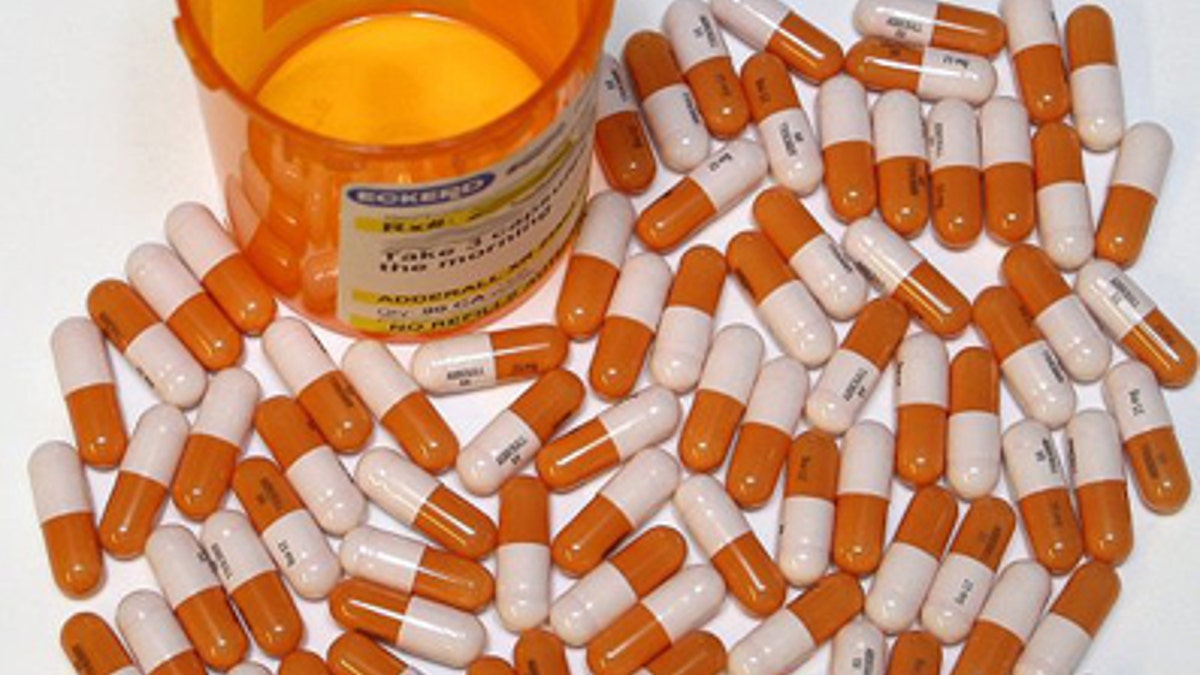
Adderall XR (Magnus Manske)
A Georgia-based doctor is prescribing children medicine for attention deficit hyperactivity disorder in order to “modify” children who are not performing well academically in sub-par schools, The New York Times reported.
Dr. Michael Anderson, a pediatrician in Cherokee County, Ga., said he “doesn’t have a whole lot of choice,” when it comes to making up the ADHD diagnosis for these low-income kids because “we’ve decided as a society that it’s too expensive to modify the kid’s environment.”
Experts say they are seeing more doctors prescribe such medicines, like Adderall, to children who may be struggling with school work in an environment that is strapped for cash. A wider trend shows wealthier students taking stimulants to raise their grades, so they can compete for top college spots.
“We as a society have been unwilling to invest in very effective non-pharmaceutical interventions for these children and their families,” Dr. Ramesh Raghavan, a child mental-health services researcher at Washington University in St. Louis, told The New York Times.
Raghavan, who is an expert in prescription drug use among children from low-income families, said psychiatrists are “effectively being forced” to use “the only tool at their disposal.”
Raghavan said Anderson is “evening the scales a little bit” because these children are “mismatched with their environment.” Since these kids can’t afford high-priced tutors and counseling, medication are the children’s only hope for success.
But other doctors fear Anderson and doctors like him are exposing children to unnecessary risks. Stimulant drugs have side effects such as growth suppression, high blood pressure – and at the most extreme, psychotic episodes.
Stimulants like Adderall are classified as Schedule II controlled substances by the Drug Enforcement Administration since they are highly addictive. There is not enough information on long-term side effects, but experts wonder if these kids can become addicted as they grow into adults.
The American Academy of Pediatrics (AAP) said doctors should use many scales for rating behavior when diagnosing ADHD. The doctor should also make sure the child does not have a non-related condition such as dyslexia or anger issues, according to the AAP. Incidentally, a 2010 study in the Journal of Attention Disorders said about 20 percent of doctors do not follow the AAP guidelines – but rather their own instincts.
Anderson has prescribed medications for Alexis and Ethan Rocafort, 12 and 9, respectively, of Ball Ground, Ga., neither of whom have ADHD, according to their parents. Their father, Rocky Rocafort, said they need the medication to improve their grades, which are “blah.”
“We’ve seen both sides of the spectrum: We’ve seen positive, we’ve seen negative,” Rocafort told The New York Times. “If they’re feeling positive, happy, socializing more, and it’s helping them, why wouldn’t you (give them the medication)? Why not?”
